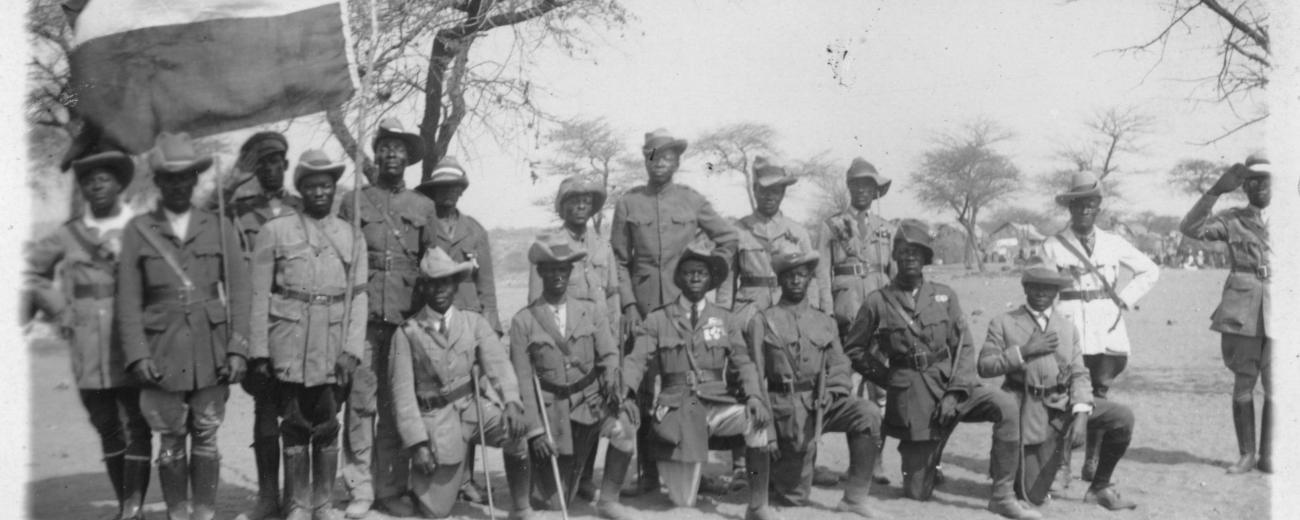
Mnemonic sovereignty: Memories of German colonialism and Africa’s decolonization

Key information
- Date
- Time
-
5:00 pm to 7:00 pm
- Venue
- SOAS (Paul Webley Wing)
- Room
- C325
About this event
Colonialism is rightfully seen as the antithesis of the sovereignty of the colonized. However, this antithetical view has made it difficult to appreciate the ways in which memories of colonialism became constitutive for the assertion of sovereignty in the postcolonial world.
This talk investigates this issue based on the example of the collapse of the German colonial empire in Africa, particularly in Namibia.
When this short-lived colonial regime ended during the First World War, its erstwhile subjects were still recovering from the Herero and Nama genocide (1904-1908) and similarly destructive colonial wars. At the same time, remembering this particularly violent yet transient colonial regime also became a way for affected societies such as the Herero to practice self-determination between the final years of German rule and the present: kinship relations, cultural practices, and anti-colonial politics all became theaters of remembrance in which sovereignty after empire began to take shape, including in form of contemporary debates over reparations for colonialism and genocide.
Expanding sovereignty beyond its state-centered, Eurocentric meaning thus illuminates the constitutive role that memory plays in the negotiation of sovereignty as well as how memories of colonialism influenced the trajectory of decolonization in Africa.
Speaker: Fabian Krautwald (UCL).
Image: Copyright by the National Archives of Namibia, with permission


